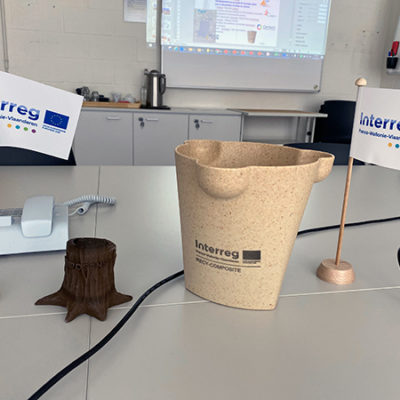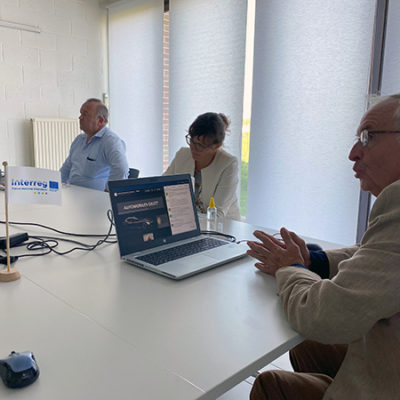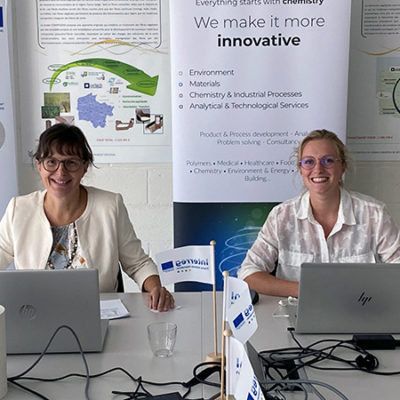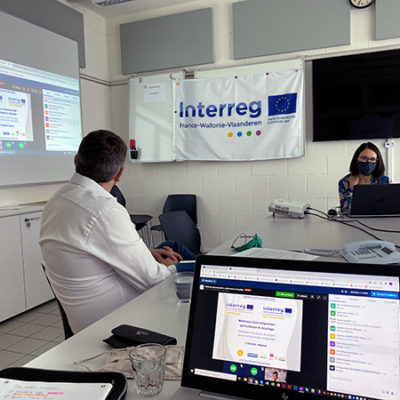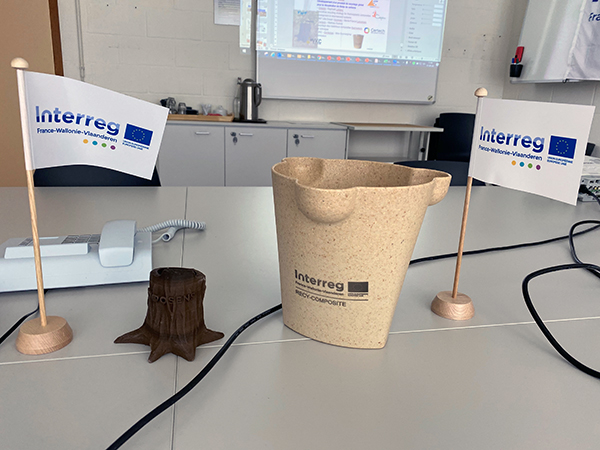
22 Sep (Bio)composite materials: performance and recycling – Report on the closing event of the COMPOSENS and RECY-COMPOSITE projects
On Thursday 17 September 2020, the closing event of two Interreg France-Wallonie-Vlaanderen projects, COMPOSENS and RECY-COMPOSITE, took place via webinar. On the programme: how to improve the performance and recycling of (bio)composite materials. Discover the report of this event and some results of the projects.
This webinar brought together more than 120 participants, mostly French and Belgian, to present the results of the two projects after 4 years of research (1 April 2016 – 30 September 2020).
The challenge for the cross-border partners of these two projects is to optimise a transition towards a circular economy for an efficient use of resources and a reduction in the environmental impacts of products throughout their life cycle.
Two complementary projects: COMPOSENS and RECY-COMPOSITE
The aim of the Interreg COMPOSENS project was the cross-border development of high-performance polymer-wood or plant-fibre composites with low environmental impact for the production of less emissive and less odorous biocomposites.
These fibres make it possible to produce biocomposites that are lighter than composite materials incorporating glass fibres, targeting applications in particular in the automotive sector.
7 partners: Certech (lead partner), CRITT M.D.T.S., IMT Lille Douai, ARMINES, Institut National de la Recherche Agronomique (INRA), ULg and ValBiom.
Gembloux Agro-BioTech – ULiège has succeeded in improving the compatibility of the fibres with the polymer matrix using a deep eutectic solvent, thus obtaining an aesthetic effect (bleaching).
INRAE compared the mechanical properties and viscosity of two different polymer matrices and demonstrated through atomic force microscopy measurements that the bio-based matrix has higher adhesion forces.
The CRITT-MDTS has developed a technique for measuring biocomposites by nano-indentation, which makes it possible to visualise elasticity values over the entire surface of the fibre. Thus, an elasticity profile can be produced on any area or direction of the fibre.
IMT Lille Douai and Armines have studied water-assisted extrusion. Flax-based biocomposites have demonstrated mechanical properties similar to oil-sourced composites as well as a tendency to reduce odours following ultrasound treatments.
The odours and volatile organic compounds emitted by biocomposites have been studied by Certech. Various additives to reduce odours have been tested to correspond as closely as possible to industrial manufacturing processes.
ValBiom carried out the life cycle analysis which highlighted the importance of the biocomposite’s lightness for automotive applications.
Together, the 7 project partners succeeded in improving knowledge of the interactions between the fibres and a polymer matrix. This project opens up new avenues of development for biocomposites.
The aim of the Interreg RECY-COMPOSITE project was to respond to the challenge of recycling composite materials through a global approach to mechanical and thermochemical recycling (pyrolysis, solvolysis) by studying innovative ways of adding value to the recycled product. Applied research was carried out both on waste from the production of thermoset composites and on end-of-life composite materials. In particular, the scientific partners studied the phenomenon of intumescence: the ability of a material to swell under the action of heat to form a protective insulating layer. The cooperation of the RECY-COMPOSITE consortium with the industrial players in the cross-border area has made it possible to highlight this problem and to underline the need for a solution for these players.

